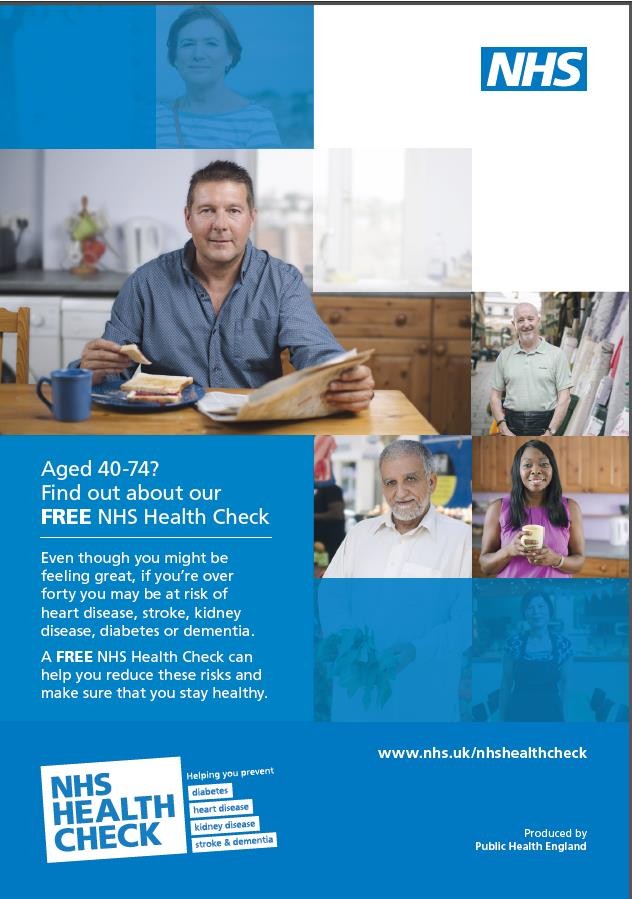Clinics&Services
Cervical Screening
- Cervical screening (also called a smear test) checks the health of your cervix.
- It's not a test for cancer, it's a test to help prevent cancer.
- All women and people with a cervix aged 25 to 64 should be invited by letter.
- During the screening appointment, a small sample of cells will be taken from your cervix.
- The sample is checked for certain types of human papillomavirus (HPV) that can cause changes to the cells of your cervix. These are called "high risk" types of HPV.
- If these types of HPV are not found, you do not need any further tests. If these types of HPV are found, the sample is then checked for any changes in the cells of your cervix. These can then be treated before they get a chance to turn into cervical cancer.
Cervical screening is important in the prevention of Cervical Cancer and saves lives. The test checks for HPV which you can find out more about at the following link https://www.nhs.uk/conditions/human-papilloma-virus-hpv.
If you have a cervix, aged 25-49 and not had a cervical screening in the last 3 years or 50-64 and not had a cervical screening in the last 5 years, please contact us to make an appointment. This quick appointment every 3 or 5 years can save your life. Please contact us to arrange your cervical screening appointment.

Bowel Cancer Screening
Bowel cancer screening involves 2 types of tests. A bowel scope test is offered at a screening centre and a test kit is offered for use at home.
Bowel cancer screening reduces your risk of dying from bowel cancer.
Finding cancer early gives you the best chance of survival.
Screening will miss some cancers, and some cancers cannot be cured.
Taking part in bowel cancer screening is your choice. You can find out more information by visiting NHS.UK.

Breast Cancer Screening
About 1 in 8 women in the UK are diagnosed with breast cancer during their lifetime. If it's detected early, treatment is more successful and there's a good chance of recovery.
Breast screening aims to find breast cancers early. It uses an X-ray test called a mammogram that can spot cancers when they're too small to see or feel.
As the likelihood of getting breast cancer increases with age, all women aged from 50 to their 71st birthday who are registered with a GP are automatically invited for breast cancer screening every 3 years.
In the meantime, if you're worried about breast cancer symptoms, such as a lump or an area of thickened tissue in a breast, or you notice that your breasts look or feel different from what's normal for you, do not wait to be offered screening, see a GP. You can find out more information by visiting NHS.UK.

A healty diet is all about balance. A balanced diet means consuming from all the different food groups and also in the right quantities. You can find more information about a healthy diet by clicking on the following links.
https://patient.info/news-and-features/how-your-diet-can-help-prevent-diabetes
https://www.nhs.uk/live-well/eat-well/the-eatwell-guide/
https://www.bhf.org.uk/informationsupport/heart-matters-magazine/nutrition
http://www.stopdiabetes.co.uk/

Pre-Diabetes
Some patients have a blood sugar level which is higher than normal, but not high enough to be called Diabetes. This is called Pre-Diabetes and can be identified by blood tests, more specifically an HbA1c blood test of between 41-47 units. Pre-Diabetes is a serious problem, which means that you are at increased risk of progressing to diabetes and to heart disease. The good news is that for many people with Pre-Diabetes, diabetes can be delayed and prevented by increasing your physical activity, making changes to what you eat and by losing weight. Keeping these changes going over time improves your overall health and reduces your heart disease risk too. Out of 100 people with Pre-Diabetes who make "healthy lifestyle" changes, only 13 will develop Diabetes (compare this with 33 out of 100 if no action is taken).
Making Changes to reduce the risks
Activity- Aim for 30minutes of activity at least 5 days per week (this should be something that makes you breathe faster and your heart rate beat faster). Try 20minutes on 3 days per week in the first month.
Lose weight- Aim for 5% weight loss over several months. Try to lose 5 pounds or 2.5kg in 2-3 months at first. Be realistic about your target weight and do it in gradual steps.
Eat healthy food- Replace fat (especially saturated fat) with healthier options. Build up to 5 portions of fruit and vegetables each day over some months.
Try to stop smoking- Start by seeking professional advice and make a clear plan before setting a firm date to stop.
Even making small changes can help lower the risk.
If you have been diagnosed with Pre-Diabetes, the practice will arrange an annual review which will include checking your HbA1c to see if the changes in lifestyle have produced an improvement in your results.
The National Diabetes Prevention Programme(NDPP) is a recent initiative to offer support and information to people with a higher risk of diabetes so they can reduce these risks and the chances of them developing diabetes in later llife.
This is local, free and has excellent feedback results from those who attend.
Diabetes is not inevitable and can be prevented with early interventions. Diabetes can place a huge burden on patients, their families and the local health services and anything we can do as individuals and as a community to reduce the onset of this condition has to be good for everyone. If you need any further advice, please book an appointment with a Practice Nurse.
Better Health Campaign
PHE has launched the latest Better Health campaign to encourage adults across the nation to lose excess weight, eat more healthily and get active this summer. Visit the campaign website for more details https://www.nhs.uk/better-health/

We provide a range of medical examinations and reports including:
- comprehensive medical examinations and reports for employment requirements, driving fitness, HGV/taxis, sports fitness.
- fit to travel certificates and freedom from infection reports
- private health care claim verifications and private sick notes
All of these services attract a cost and are not covered by the NHS. Current charges are as follows:
| Standard Forms & Certificates | £30 |
| Standard Short Letter | £25 |
| Passport/Driving Licence Countersignature | £15 |
| Bus Pass Form | £10 |
| Medical Examination (HGV, taxi, pilot, sports etc) | £130 |
| Private Medical Examination | £60 |
| Child Minder Health Form | £85 |
| Copies of Full Medical Records | £50 |
| Power of Attorney Visit and Report | £150 |
| Power of Attorney Forms Only – No Visit | £55 |
| GP Report | £105 |
| GP Report (additional) | £50 |
All of the above charges are within the suggested guidelines and agreed by the British Medical Association.
Please speak to a Receptionist or visit our website for further information about making an appointment.
We offer minor operations in the comfort of a local surgery for procedures such as the removal of moles & cysts.
If you and your GP agree that the surgery is appropriate, you will be assessed prior to any procedure.
The service is free of charge to NHS patients.
Please speak to a Receptionist for further information.
We offer a full family planning service to patients free of charge. This includes providing advice on:
- family planning issues in general and associated prescriptions.
- possible fitting of Intrauterine Devices (IUDs or ‘coils’), such as the Mirena coil
- inserting long-acting reversible contraceptives, such as Implanon and Nexplanon, which provide contraception for up to 3 years without the need for regular check-ups or daily pill taking. These are delivered as a small rod beneath the skin under local anaesthetic.
All of the Practice GPs are able to discuss wider family planning issues and prescriptions. However, if you would like to discuss IUDs or long-acting contraceptives, please make an appointment with Dr Muirhead or Dr White who are trained in their counselling, insertion, follow-up and removal.
Before making an appointment, please refer to the Family Planning Association website for further helpful information on your options.
More information about the contraceptive methods can be found here.


